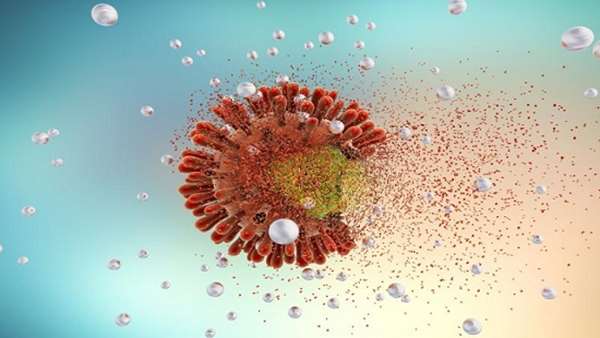CAR T-Cell Therapy Shows Potential to Fight HIV
Researchers have turned to gene therapy in an effort to destroy HIV infected cells in the body, and also create long-term immunity from the disease over the long haul.
Researchers have turned to gene therapy in an effort to destroy HIV infected cells in the body, and also create long-term immunity from the disease over the long haul.
A team from UCLA has engineered blood-forming stem cells—hematopoietic stem/progenitor cells (HSPCs)—to carry chimeric antigen receptor (CAR) genes to produce cells that can detect and destroy HIV-infected cells. In a study, these genetically engineered cells persisted in the body for more than two years, which could lead to long-term immunity from the virus that causes AIDs.
The researchers used a CAR molecule that hijacks the essential interaction between HIV and the cell surface molecule CD4. This interaction makes stem cell-derived T-cells that target the infected cells by binding to the HIV, while other regions of the CAR molecule signal the cell to become activated and kill the HIV infected cells.
After testing the hypothesis in animals, the researchers found that modifying the blood-forming stem cells resulted in more than two years of stable production of CAR-expressing cells without any adverse effects.
The cells were also widely distributed throughout the lymphoid tissues and gastrointestinal tract, both major anatomic sites for HIV replication and persistence in infected patients.
While antiviral drugs suppress the amount of HIV in the body to almost undetectable levels, an effective immune response is necessary to eradicate the virus.
Researchers have been seeking a way to improve the body’s ability to combat the virus by engineering blood-forming stem cells to specifically target and kill HIV-infected cells for the life of the individual.
CAR T-cells are becoming a powerful immunotherapy for several forms of cancer and have shown promise as being an effective combatant against HIV-1 infections. However, the therapy may not impart long-lasting immunity on its own, leading to a push for T cell-based products that can respond to malignant or infected cells that may reappear months or years after treatment.
The new findings are the first to show that blood-forming stem cells can be modified with a CAR therapy that can safely engraft in the bone marrow, mature and become functional immune cells throughout the body.
The researchers are hoping in the future to combine the new gene therapy with other treatment options, including antiretroviral therapy, which could reduce infected individuals’ dependence on antiviral medications, lower the cost of therapy and permit the possible eradication of HIV from its hiding places in the body. The approach could also be used against other infections and malignancies.
Reference: http://journals.plos.org/plospathogens/article?id=10.1371/journal.ppat.1006753





ارسال به دوستان